Background
Grazia Deledda was born on September 27, 1875 in Nuoro, Sardinia, into a middle-class family.


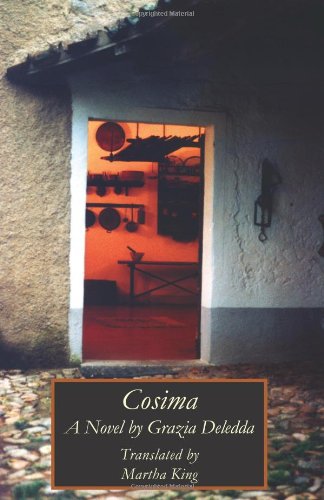
(Short description: "Cosima" tells the story of an aspirin...)
Short description: "Cosima" tells the story of an aspiring writer growing up in Nuoro, Sardinia during the last decades of the nineteenth century when formal education for women was rare and literary careers unheard-of. Based on Deleddas own life, the work describes a young womans struggle against the dismay and disapproval of her family and friends at her creative ambitions. Yet it also reads like a charming fable with details of family life, rural traditions and wild bandits, and it is as much a novel of memory as of character or action. Deleddas characters are poor country folk driven by some predetermined force. Their loves are tragic, their lives as hard and as rigidly controlled as nature itself in the hills of Sardinia. Deledda creates memorable figures who play out their lives against this backdrop of mountains and bare plains, sheepfolds and vineyards. Shimmering in the distance is the sea and escape for a few to the Continent or America. In 1926 Grazia Deledda became the second woman and the second Italian to receive the Nobel Prize for Literature. She wrote thirty-three novels, including "Reeds in the Wind," and many books of short stories, almost all set on Sardinia. Her work has become well known to English-speaking readers through Martha Kings translations for Italica Press.
http://www.amazon.com/gp/product/0934977062/?tag=2022091-20
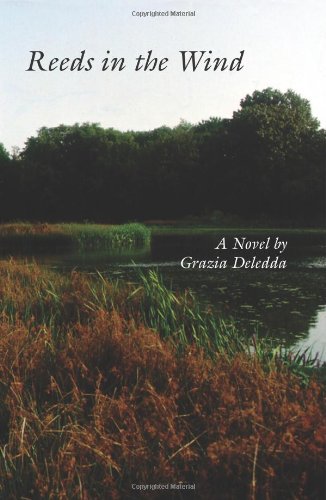
(The rugged landscape of Baronia on Sardinia sets the scen...)
The rugged landscape of Baronia on Sardinia sets the scene for this novel of crime, guilt and retribution. This novel presents the story of the Pintor sisters - from a family of noble landowners now in decline - their nephew Giacinto, and their servant Efix, who is trying to make up for a mysterious sin committed many years before. Around, below, and inside them the raging Mediterranean storms, the jagged mountains, the murmuring forests, and the gushing springs form a Greek chorus of witness to the tragic drama of this unforgiving land. Deledda tells her story with her characteristic love of the natural landscape and fascination with the folk culture of the island, with details about the famous religious festivals held in mountain encampments and the lore of the "dark beings who populate the Sardinian night, the fairies who live in rocks and caves, and the sprites with seven red caps who bother sleep." Introduction by the Sardinian ethnographer, Dolores Turchi.
http://www.amazon.com/gp/product/0934977631/?tag=2022091-20
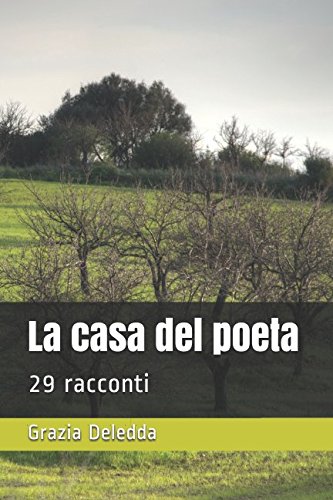
("La casa del poeta" è una serie di racconti brevi scritti...)
"La casa del poeta" è una serie di racconti brevi scritti da Grazia Deledda, brevi, brevissimi e scorrevoli. Si parla di sentimenti, profondi, come l'odio, la stima, l'invidia e con poche frasi l'autrice riesce a scrivere un racconto che fa entrare il lettore, oltre che in quel mondo, anche nei personaggi che provano quelle emozioni. Non sempre le trame sono riuscite, ma lo stile è eccelso I racconti sono: "Il fidanzato scomparso", "Il bacio del gobbino", "La leggenda di Aprile", "La promessa", "Il sicario", "Battesimi", "La casa del poeta", "Famiglie povere", "Vetrina di gioielliere", "Feriti", "Storia di un cavallo", "Cosa che si raccontano", "Borse", "Laquila", "Il lupo nel baule", "Pace", "Il terzo", "Denaro", "Tramonti", "Lamico", "La sorgente", "Il cieco di Gerico", "Compagnia", "La morte delle tortora", "Semi", "La Roma nostra", "La nostra orfanella", "La fortuna", "La ghirlanda dellanno". Maria Grazia Cosima Deledda è nata a Nuoro, penultima di sei figli, in una famiglia benestante, il 27 settembre 1871. E stata la seconda donna a vincere il Premio Nobel per la letteratura, nel 1926. Morirà a Roma, all'età di 64 anni, il 15 agosto 1936.
http://www.amazon.com/gp/product/1549525913/?tag=2022091-20
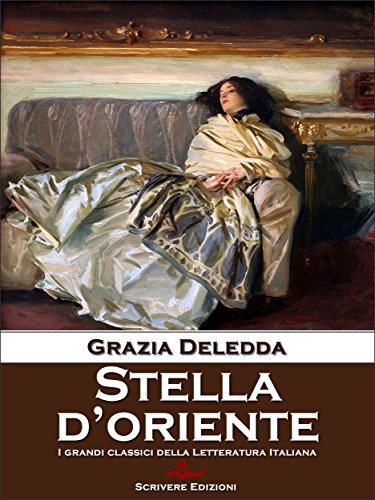
("Stella d'oriente" è un romanzo giovanile della Deledda, ...)
"Stella d'oriente" è un romanzo giovanile della Deledda, uscito a puntate sul quotidiano di Cagliari "L'avvenire della Sardegna" con lo pseudonimo Ilia de Saint Ismail. E' una storia romantica con toni tragici. La protagonista è Stella, un'orfanella che salva la vita ad una ricca coppia, la marchesa Anna di Oriente e suo marito il marchese Don Francesco, durante una tempesta in mare. Per riconoscenza Stella viene adottata e così diventa la marchesina Stella di Oriente. Nascerà adesso una intricata storia d'amore e di terribili segreti, una coinvolgente lettura romantica. Maria Grazia Cosima Deledda è nata a Nuoro, penultima di sei figli, in una famiglia benestante, il 27 settembre 1871. E stata la seconda donna a vincere il Premio Nobel per la letteratura, nel 1926. Morirà a Roma, all'età di 64 anni, il 15 agosto 1936.
http://www.amazon.com/gp/product/B074WLLW2D/?tag=2022091-20
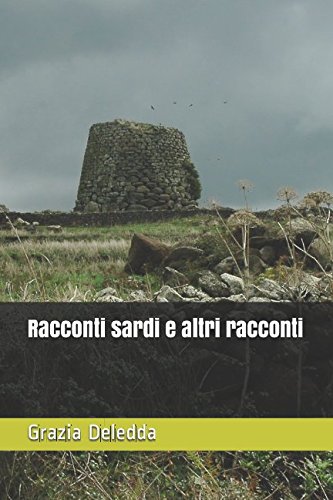
(In questo "Racconti sardi e altri racconti" si pubblicano...)
In questo "Racconti sardi e altri racconti" si pubblicano due raccolte di racconti ed un racconto lungo di Grazia Deledda. Comprende: "Racconti sardi" (Di notte, Il mago, Ancora magie, Romanzo minimo, La dama bianca, In sartu (Nell'ovile), Il padre, Macchiette); "Il vecchio della montagna"; "La regina delle tenebre" (La regina delle tenebre, Il bambino smarrito, Le due giustizie, La giumenta nera, Sarra, I primi baci). Maria Grazia Cosima Deledda è nata a Nuoro, penultima di sei figli, in una famiglia benestante, il 27 settembre 1871. E stata la seconda donna a vincere il Premio Nobel per la letteratura, nel 1926. Morirà a Roma, all'età di 64 anni, il 15 agosto 1936.
http://www.amazon.com/gp/product/154951752X/?tag=2022091-20

(Hundred and Seven. In the strangers room of the Porru hou...)
Hundred and Seven. In the strangers room of the Porru house a woman sat crying. Crouched on the floor near the bed, her knees drawn up, her arms resting on her knees, and her forehead on her arms, she wept and sobbed continuously, shaking her head from time to time as though to indicate that there was no more hope, absolutely none at all; while her plump shoulders and straight young back rose and fell in the tightly fitting yellow bodice, like a wave of the sea. The room was nearly in darkness; there were no windows, but through the open door which gave upon a bricked gallery, a stretch of dull grey sky could be seen, growing momentarily darker; and far, far away, against this dusky background, gleamed the yellow ray of a little, solitary star. From the courtyard below came the shrill chirping of a cricket, and the occasional stamp of horses hoofs on the stone pavement. (Typographical errors above are due to OCR software and don't occur in the book.) About the Publisher Forgotten Books is a publisher of historical writings, such as: Philosophy, Classics, Science, Religion, History, Folklore and Mythology. Forgotten Books' Classic Reprint Series utilizes the latest technology to regenerate facsimiles of historically important writings. Careful attention has been made to accurately preserve the original format of each page whilst digitally enhancing the aged text. Read books online for free at www.forgottenbooks.org
http://www.amazon.com/gp/product/B008M0BDC4/?tag=2022091-20
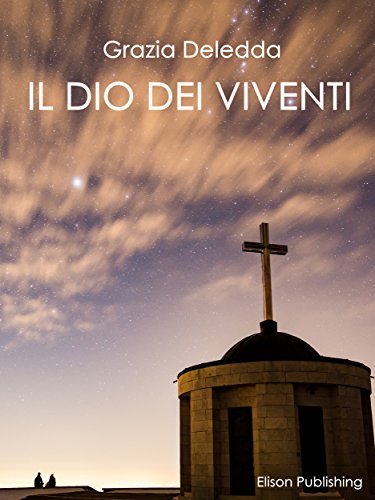
("Le cose erano andate come la famiglia Barcai sperava. Il...)
"Le cose erano andate come la famiglia Barcai sperava. Il fratello maggiore, Basilio, scapolo ma padre di un figlio illegittimo, era morto senza lasciare testamento. Così i suoi beni tornavano al fratello minore Zebedeo; il patrimonio Barcai si ricomponeva come ai tempi del vecchio nonno il quale aveva costretto due suoi figliuoli a farsi preti e una figlia a non prendere marito perchè i suoi beni non andassero divisi. E la tradizione prometteva di continuare perché Zebedeo non aveva che un figlio e la gente diceva che quel figlio era rimasto unico per volontà dei genitori nella speranza appunto che lo zio morisse scapolo." Alla morte di Basilio, Zebedeo, fratello minore, nasconde il testamento per lasciare senza diritti il giovane nipote Salvatore a cui spetterebbe l'eredità. Ma nn riuscirà mai a disfarsi del senso di colpa e per riparare incontra Lia, la madre di Salvatore de ex-amante del fratello, e offre loro un sostentamento economico, senza però mai confessare il suo misfatto.
http://www.amazon.com/gp/product/B074XMHTVZ/?tag=2022091-20
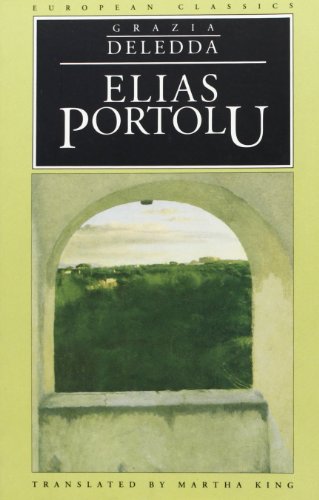
( Winner of the 1926 Novel Prize for Literature After se...)
Winner of the 1926 Novel Prize for Literature After serving time in mainland Italy for a minor theft, Elias Portolu returns home to Nuoro, in rural Sardinia. Lonely and vulnerable after his prison exile, he falls in love with his brother's fiancée. But he finds himself trapped by social and religious strictures, his passion and guilt winding into a spiral of anguish and paralyzing indecision. For guidance he turns first to the village priest, who advises him to resist temptation; then he turns to the pagan "father of the woods," who recognizes the weakness of human will and urges him to declare his love before it is too late.
http://www.amazon.com/gp/product/0810112515/?tag=2022091-20

( The novel begins with Costantino Ledda's conviction and...)
The novel begins with Costantino Ledda's conviction and sentencing for the murder of his cruel uncle. Though innocent of the crime, he accepts the guilty verdict as punishment for marrying Giovanna Era through a civil ceremony rather than an expensive church wedding. When her husband is taken away, Giovanna has no way to provide for herself, her mother, and her son, who soon dies of malnutrition. Out of desperation she divorces Costantino, according to a new law for wives of convicts, and marries a wealthy but brutish landowner. When the true murderer confesses and Costantino returns, he and Giovanna begin a forbidden and ultimately destructive affair. Deleda's tragic story of poverty, passion, and guilt portrays the primitive and remote world of the church, pre-Christian superstitions, and laws dictated from the mainland, in her native Sardinia, where society hangs in a delicate balance. Once this order is disrupted, none of these characters can escape the spiral of destruction dictated by fate, God, and society.
http://www.amazon.com/gp/product/0810112493/?tag=2022091-20
Grazia Deledda was born on September 27, 1875 in Nuoro, Sardinia, into a middle-class family.
Deledda's formal education ended in 1882 (she attended elementary school) and she was also educated by a private tutor. Thereafter she was largely self-taught through reading.
Grazia started writing at a very young age, inspired by the Sardinian peasants and their struggles. When she was only 15, her first novel, Sangue Sardo, was published.
In quick succession followed the novels Stella d'oriente ("Star of the East"), 1890; Amore regales ("Regal Love") 1891; Amori fatal ("Fatal Loves"), 1892; and Fior di Sardegna ("The Flower of Sardinia"), 1892.
Fior di Sardegna made Deledda famous, though her work, perhaps because it hit too close to home, was still shunned in her native Sardinia. This and other early successes encouraged her to continue writing, and at the time of her death, she had written more than 30 novels and a number of short stories. Her work is without any great intellectual profundity, but it is emotionally convincing and the characters are sharply drawn and soundly portrayed. Deledda had met Madesani the previous fall on her first trip away from home, to Cagliari, the capital of Sardinia.
In 1896 Deledda published La via del male ("The Way of Evil"), which novelist Capuana read and praised highly. Her final works written in Sardinia were La giustizia ("Justice") and Le tentazoni, both published in 1899. Moving to Rome, Deledda led something of a dual life. In 1900 Deledda published Il Vecchio Della Montagna ("The Old Man of the Mountain"). This was followed in 1902 by Dopo il division (After the Divorce), reissued in 1920 as Naufraghi in Porto. The novel Deledda considered to be her breakthrough work was Elias Portolú, published in 1903. The conflicts within Elias and the men he seeks out for advice are metaphors for the conflicts and divisions of Sardinia at the turn of the twentieth century. The novel, as Deledda's contemporary Joseph Spencer Kennard, wrote in his 1906 study Italian Romance Writers "is an interesting study of religious sentiment in the primitive minds of the Sardinians, and a careful analysis of the relation between the mode of interpreting the Christian dogma and the patriarchal compactness of the household.
Deledda produced her best work between the years 1903 and 1920. She followed up Elias Portolú with the 1904 publication of Cenere ("Ashes"). This too was widely translated, affording Deledda a large readership outside of Italy. In 1916 Cenere was made into a film by Febo Mari, starring noted Italian stage actress Eleonora Duse (1858–1924). In 1907 Deledda published L'ombra del passato ("Shadow of the Past") and the following year L'edera ("The Ivy"). In 1912 she collaborated with Camillo Antona-Traversi to produce a dramatic version of L'edera.This was Deledda's only foray into playwriting, although in 1904 she had authored the dramatic sketch Odio Vince ("Hate Wins") and in 1924 wrote another titled A sinister ("To the Left").
In 1913 Deledda published Canne al Vento ("Reeds in the Wind"), considered among her greatest novels. Into this climate of stasis comes the sisters' ne'er-do-wellnephew Giacinto, the son of a fourth sister who fled from her stifling family culture years before. Giacinto brings chaos, destruction, and change from the outer world, penetrating the calm of the insulated family and their acquaintances while Efix, as protector, watches, powerless to help. In 1920 she released La Madre (The Mother; also translated as The Woman and the Priest). She enjoyed the esteem of Italian critics and received international recognition with the award of the Nobel Prize for 1926.
Grazia Deledda was a practitioner of Italian verismo or "realist" fiction in the late nineteenth and early twentieth centuries as well as a winner of the Nobel Prize for Literature. Her best-known works are Sino al confine (1910), Cenere (1904; English translation Ashes, 1908), EliàsElias Portolu, L'incendio nell'oliveto, La madre (1920; English translation The Mother, 1923) and the short stories, full of Sardinian color, in such volumes as Racconti sardi (1894) and Nell'azzurro (1898).
(Short description: "Cosima" tells the story of an aspirin...)
("Stella d'oriente" è un romanzo giovanile della Deledda, ...)
( Winner of the 1926 Novel Prize for Literature After se...)
(In questo "Racconti sardi e altri racconti" si pubblicano...)
("La casa del poeta" è una serie di racconti brevi scritti...)
(The rugged landscape of Baronia on Sardinia sets the scen...)
( The novel begins with Costantino Ledda's conviction and...)
("Le cose erano andate come la famiglia Barcai sperava. Il...)
(Hundred and Seven. In the strangers room of the Porru hou...)
In 1899, Grazia Deledda went out of her village for the first time in her life and visited Cagliari, the capital of Sardinia. There she met Palmiro Madesani, a civil servant under the Ministry of War. They got married in 1900 and settled in Rome. The couple had two sons.
Madesani was a civil servant and after their marriage he and Deledda lived in Rome.
He was Deledda's maternal uncle, a clergyman named Sebastiano Cambosu, who taught her to read and write before she was of school age; her first spoken language was Logudorese Sardo, an island dialect.
